GTG Links 37 – Another year closer to climate deadlines

Welcome back – I hope you had a good Christmas and New Year. 2024 is shaping up to be a big year, with some pretty significant changes. The planet is hotter than it has ever been in human history. The pace of change continues to lag behind what the science says is needed. And the global poly-crisis of multiple intersecting emergencies (climate, inequality, political and military conflict) shows little sign of untangling, or even slowing. Nevertheless, we carry on, doing what we can within our little sphere of influence.
Here's what I've been reading and thinking about over the last couple of weeks – maybe it will be illuminating for you as well.
The US just had the warmest December on record
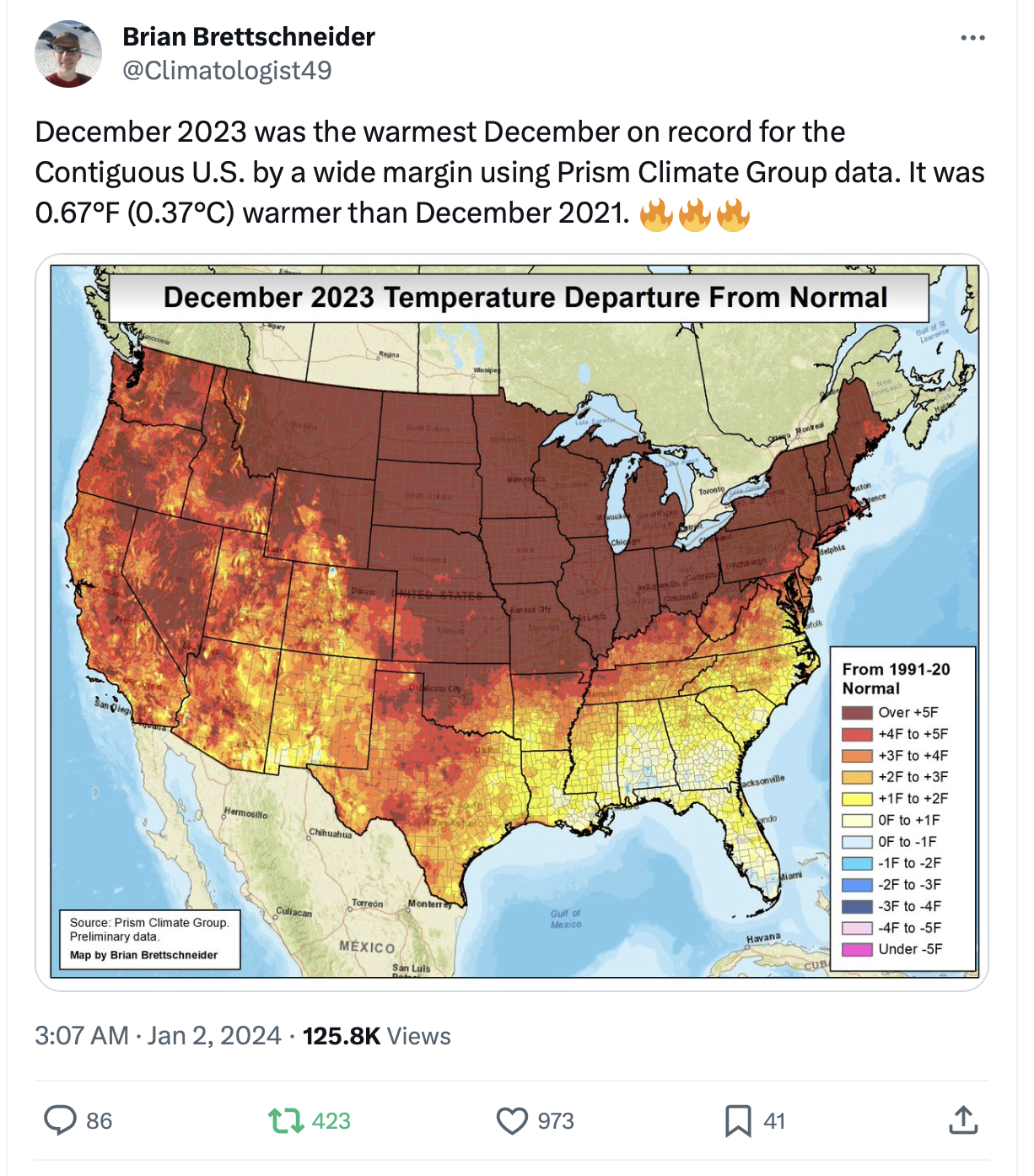
And the rest of the year was also... the warmest on record
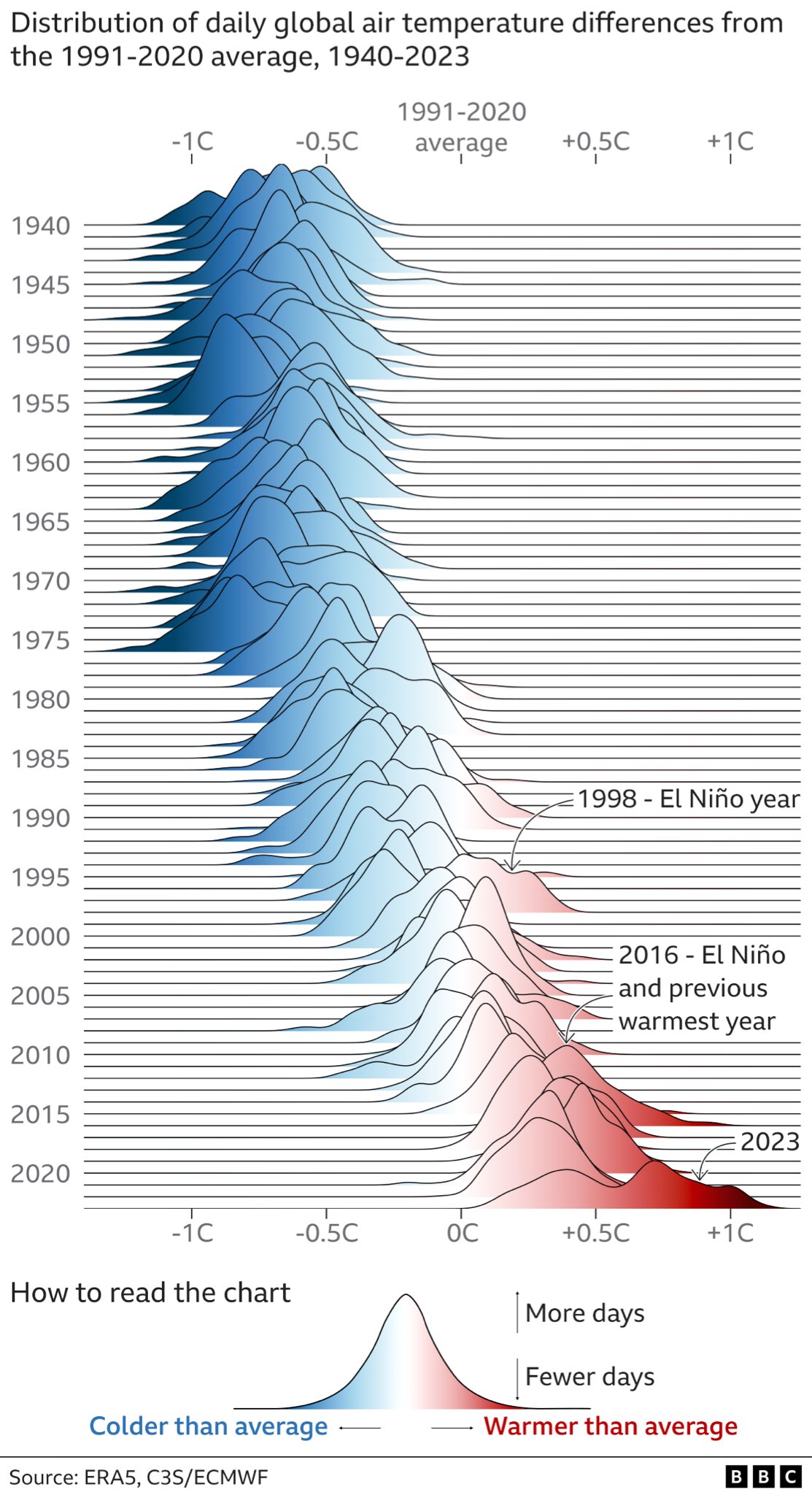
Global extreme weather costs already up to $143bn a year
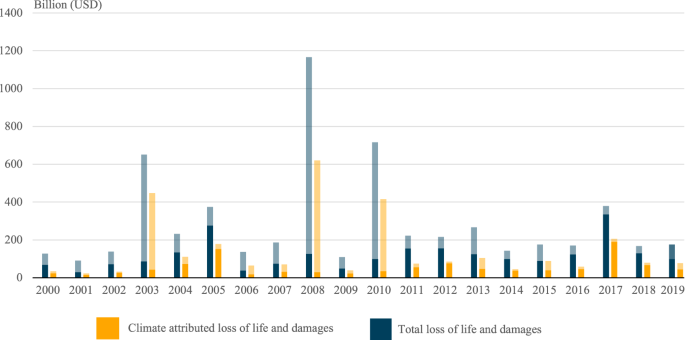
P4PA & the UNEP have a new paper on investing in the voluntary carbon market
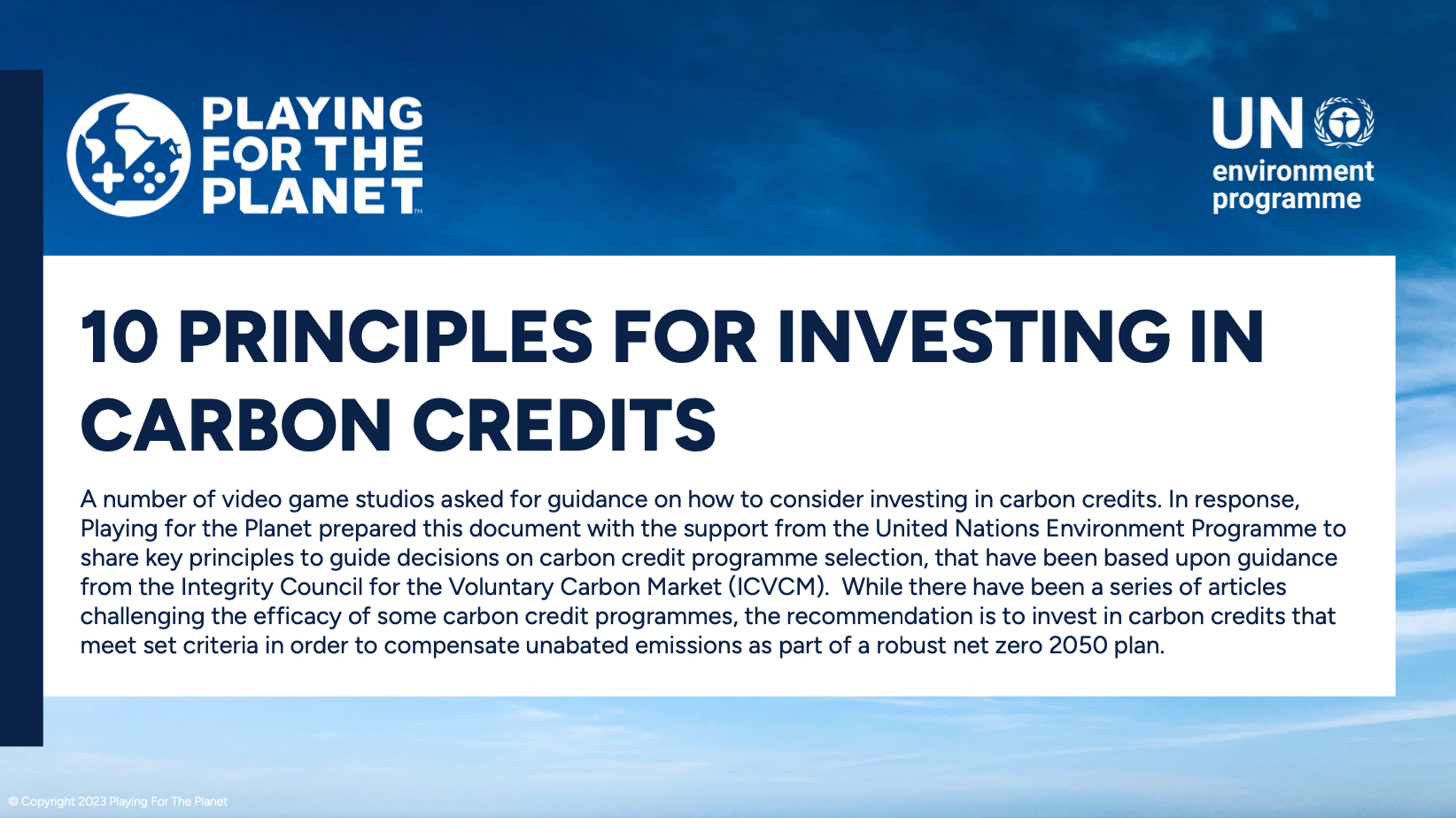
I have not had a chance to dig into this one yet – but the PDF is here.
Chris Waldon has been working on a real-time power measuring tool for games
Built off of Intel's RAPL (Running Average Power Limit), this new tool looks super useful and promising. He's also made it open-source, and is after feedback from real-world users. I'm going to give it a crack in the next couple of weeks when I get a chance – this could be a very useful tool!
As it's the first I'd heard of Intel's RAPL, I did some googling and found that the consensus seems to be that it's a pretty good method of approximating for real, measured plug-level power consumption. Here's a comp-sci publication from 2018 that put it through its paces:
Our observations reveal that RAPL readings are highly correlated with plug power, promisingly accurate enough, and have negligible performance overhead. Experimental results suggest RAPL can be a very useful tool to measure and monitor the energy consumption of servers without deploying any complex power meters.
Neat! Thanks Chris for taking the lead on finding and applying this. Watch this space, because I think this could be a real boon for software efficiency nerds.
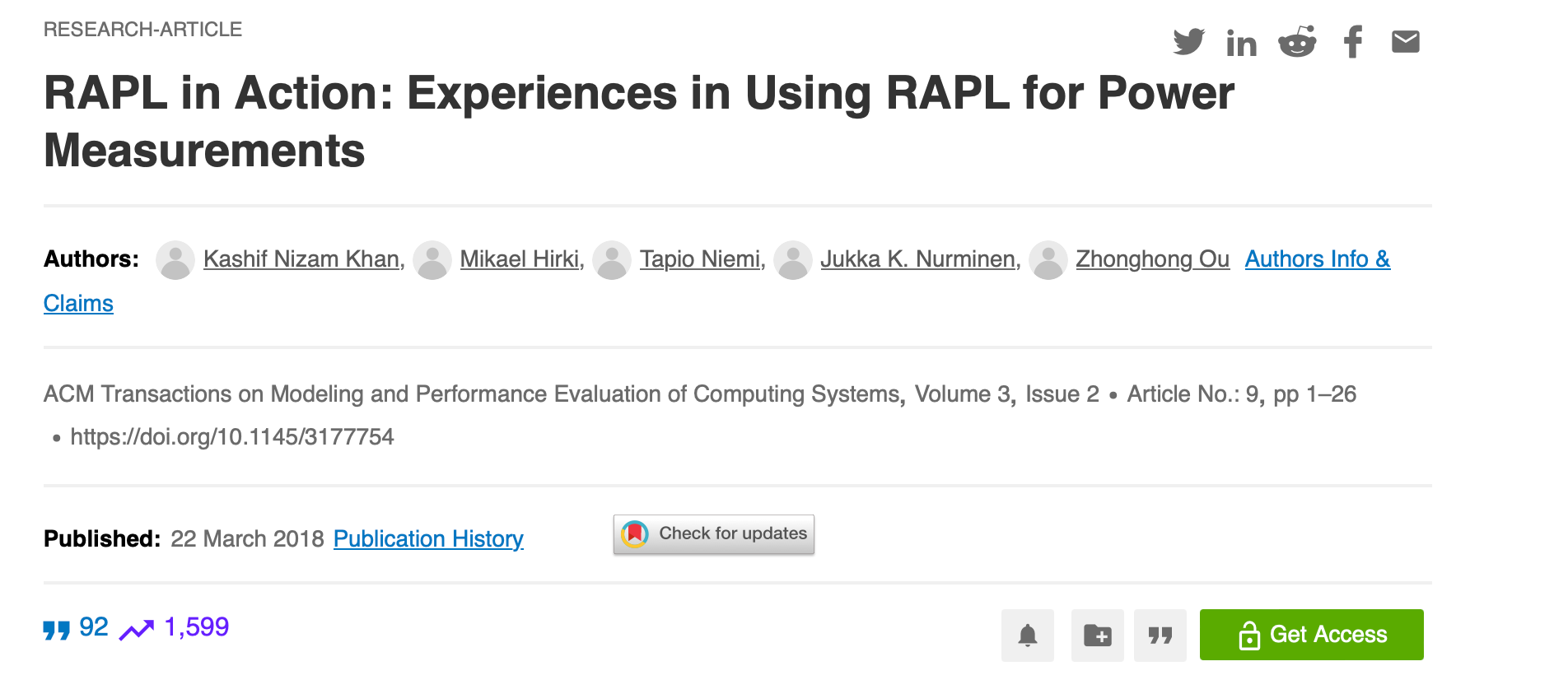
P4PAs Deborah Mensah-Bonsu in Bloomberg Green

Maybe DLSS training doesn't break the carbon bank - but what about everyone else?
It is reported that a total of 3.5 million units of NVIDIA's H100 will consume around 13,000 GWh of electricity annually. …NVIDIA's H100s AI GPUs around the globe are now expected to utilize electricity equal to what countries like Guatemala and Lithuania consume yearly...
Yikes.

The UAE and McKinsey are buying up Kenyan land for carbon credits – with terrible consequences
Read this story to see why it is so important to get the voluntary carbon market under control.
The UAE’s hunger for carbon credits is causing the violent eviction of hundreds of thousands of indigenous people in Kenya. With the support of a US consultancy firm, UAE carbon trading companies pledged to invest $450 million in carbon credits at the recent African Climate Summit in Nairobi. A stipulation of their agreement with the Kenyan government was to reduce emissions from any forests covered by the scheme. Immediately after the deal was signed, Kenyan President Ruto ordered the eviction of all people living in these forests, the 10 Water Towers of Kenya, to “protect forests from encroachment”.

National Cognitive Dissonance
Repurposed server CPUs for cheap gaming PCs
Chinese ecommerce site Taobao has gaming PCs for sale that seemingly utilise the work of amateur Russian hackers who have updated the BIOS & firmware for server motherboards and chipsets that are no longer supported by the manufacturers. Not on that, but they seem to add feature support never intended for them, with the result being some super cheap gaming hardware, and some nifty avoided ewaste.
GFANZ progress report
The world's biggest alliance of investors united in the goal of net zero released their annual update last month. [PDF]
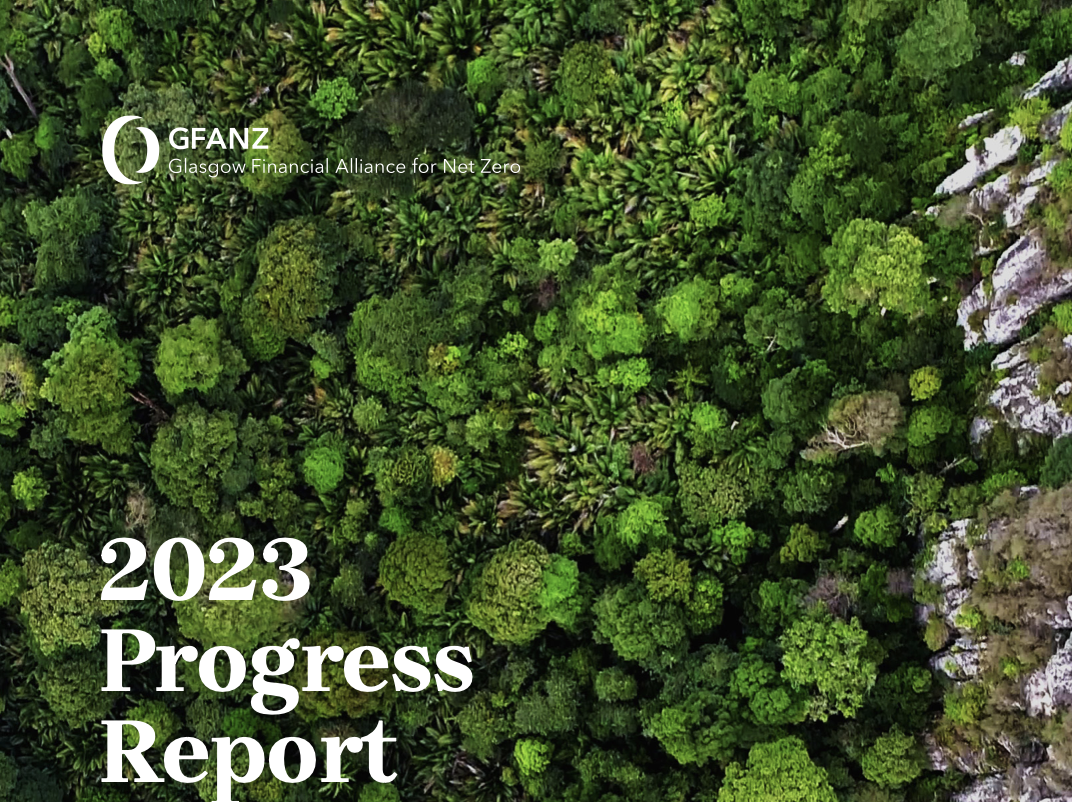
The alliance has grown quite rapidly across several types of financial institution.
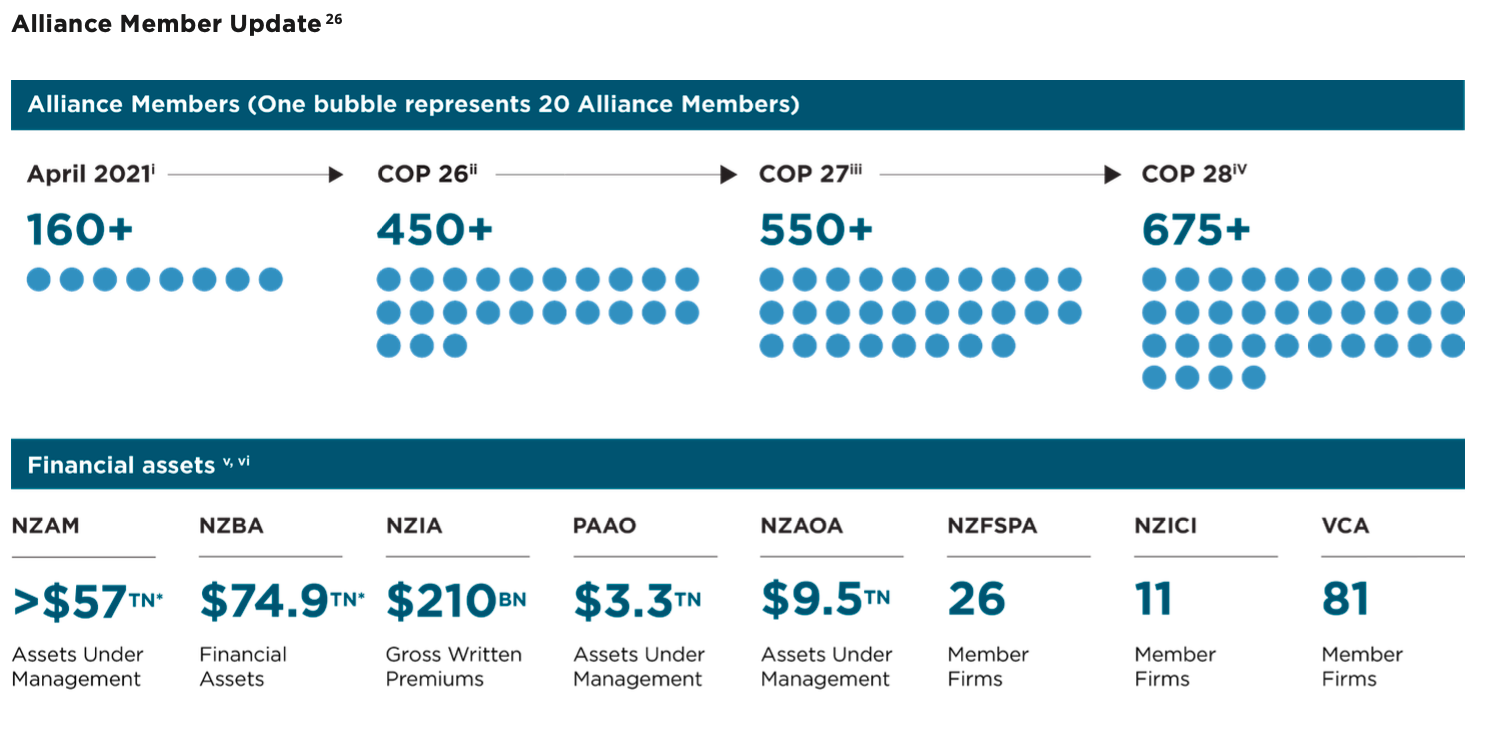
Ten of the most wild weather events from 2023

Transport modes GHG intensity infographic
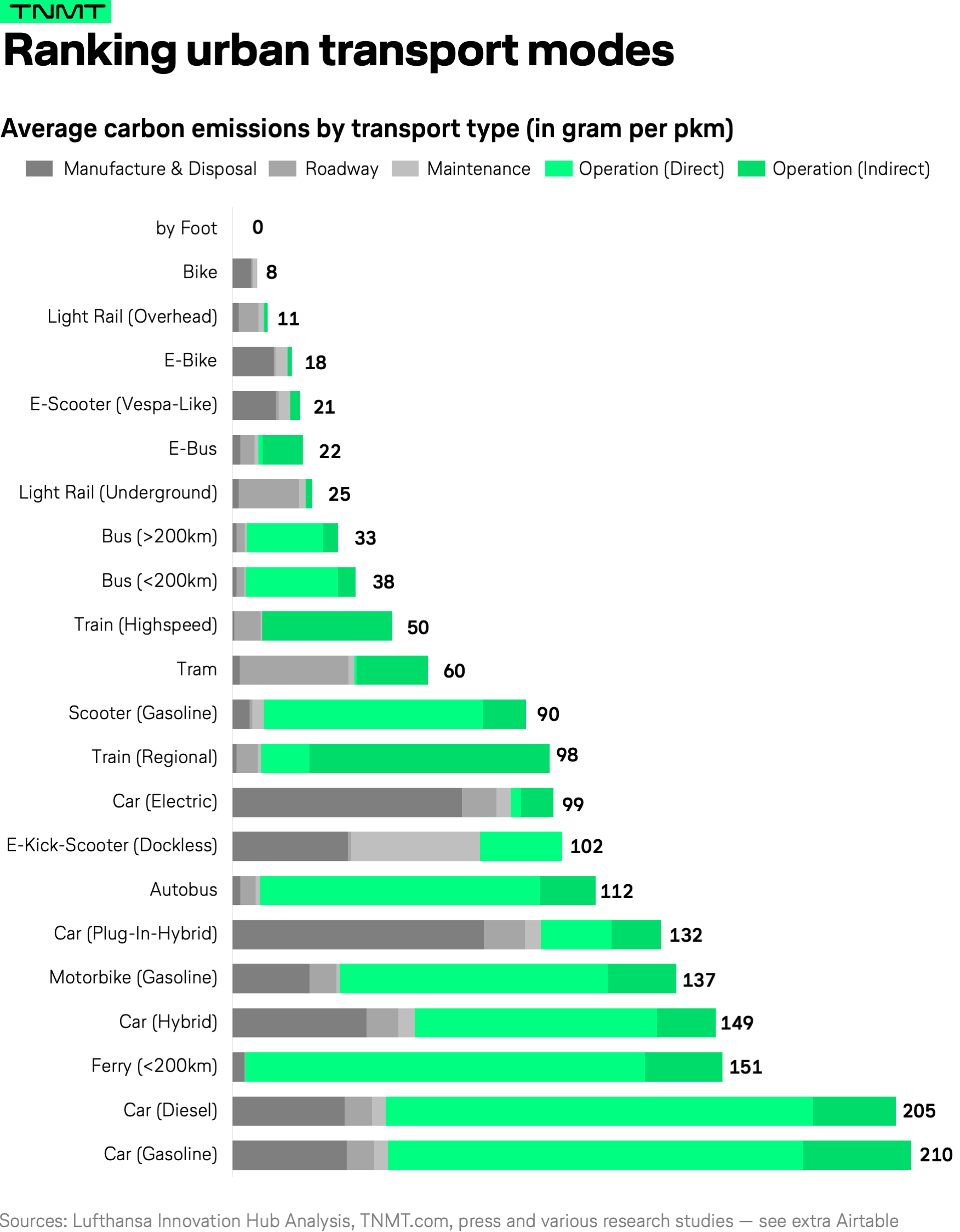
The footprint of Digital marketing
The GHG impact of digital marketing – especially for mobile games – is a major part of several large game businesses Scope 3. For example: total marketing costs made up 20% of Activision Blizzard's total footprint in 2022. This interview with "2 experts in AdTech with a soft spot for Sustainability" looks like an interesting discussion of the state of things, and what it might take to reduce those sorts of numbers.

Mel Gregg and Yolande Strenders on going beyond sustainability dashboards
“This perspective is inspired by current affairs in corporate social responsibility reporting in large technology companies, specifically the deployment of new software services to track carbon emissions in pursuit of Net Zero commitments. Drawing on first-hand observation of this practice over several years of employment in a US multinational firm, we focus on the carbon emissions dashboard as a representative example of key problems with the dominant approach to sustainability targets in the Information Technology (IT) sector. First, the ways in which green software tools and carbon accounting distract from more substantial climate action from business. Second, the reliance on tools that reinforce the hallmarks of petroculture – energy efficiency and productivity – irrespective of resource use and materials depletion. And third, the growing consensus on sustainability promoted by technology monopolies whose latest AI products clearly increase energy demand. We conclude with an invitation to energy social scientists to become more active in leveraging their expertise to develop comprehensive sustainability goals for the technology sector.”
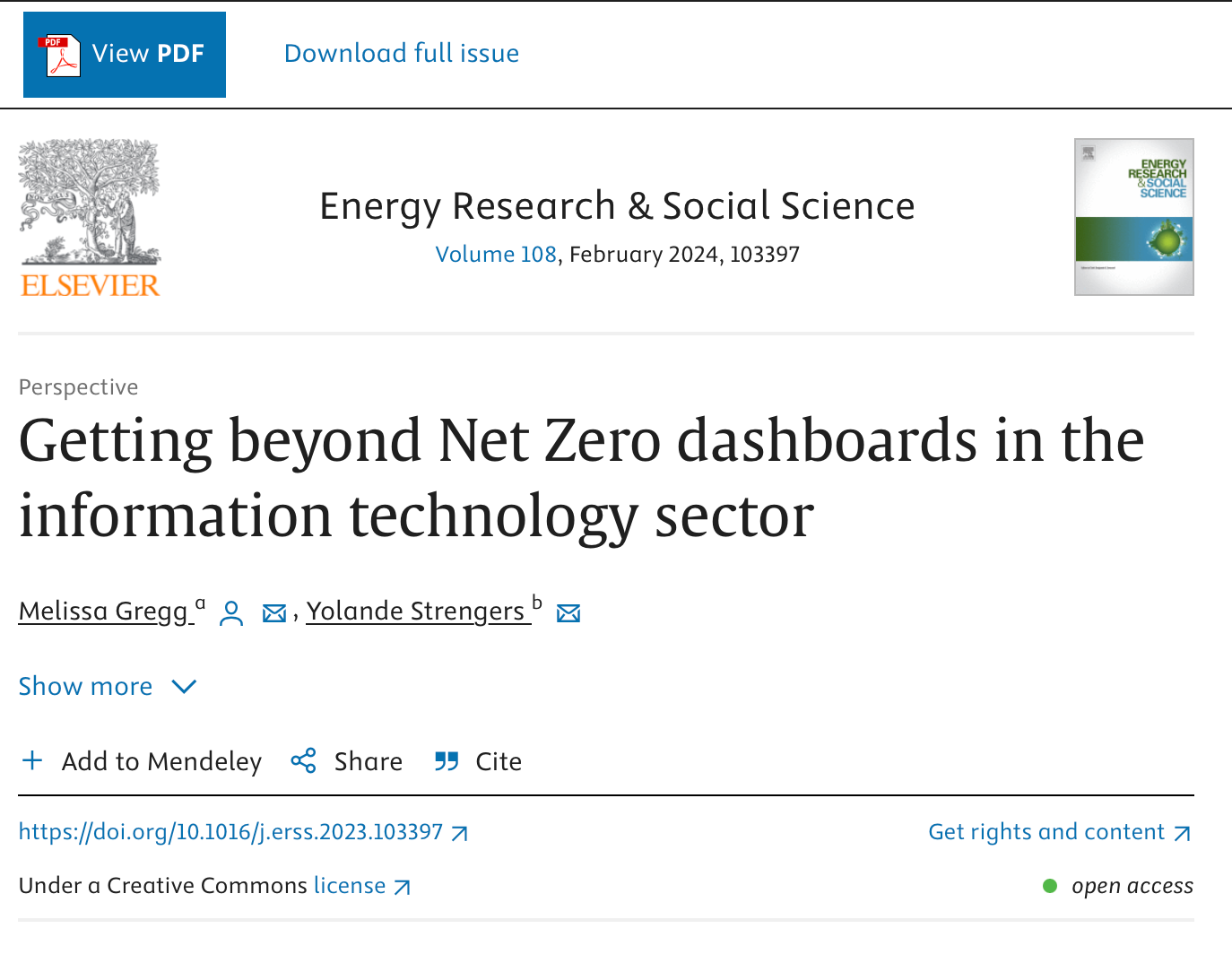
Cool IEA chart on shifting investment flows around the world
“Investment flows are already shifting the world towards a more electrified, renewables-rich energy system. Five years ago, for every $1 invested in fossil fuels, $1 went to clean energy. But today, for every $1 invested in fossil fuels, $1.80 goes to clean energy. “
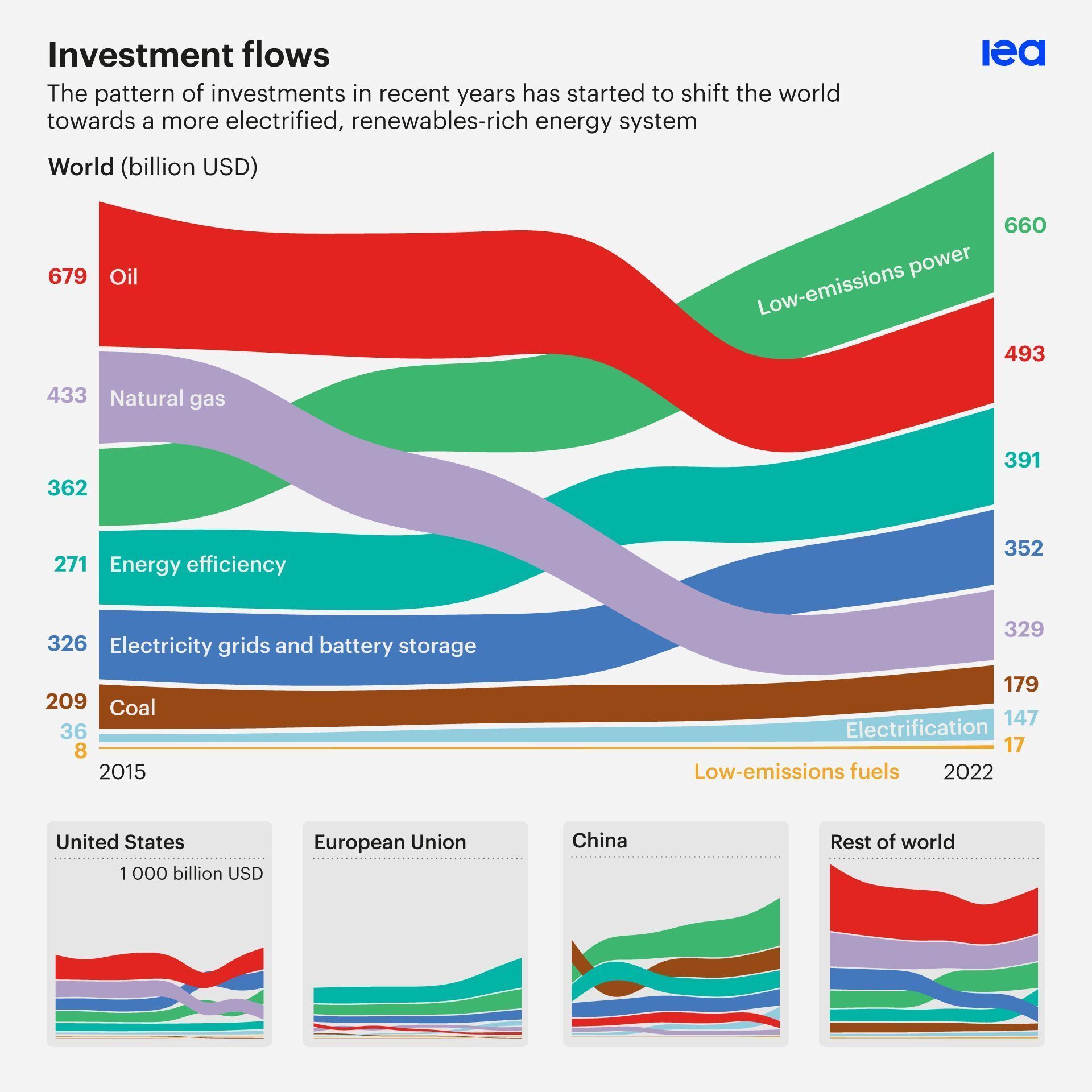
Hawaii’s big battery comes online – powering thousands of homes and businesses.
“The plant’s 185 megawatts of instantaneous discharge capacity match what the old coal plant could inject into the grid, though the batteries react far more quickly, with a 250-millisecond response time. Instead of generating power, they absorb it from the grid, ideally when it’s flush with renewable generation, and deliver that cheap, clean power back in the evening hours when it’s desperately needed.”







